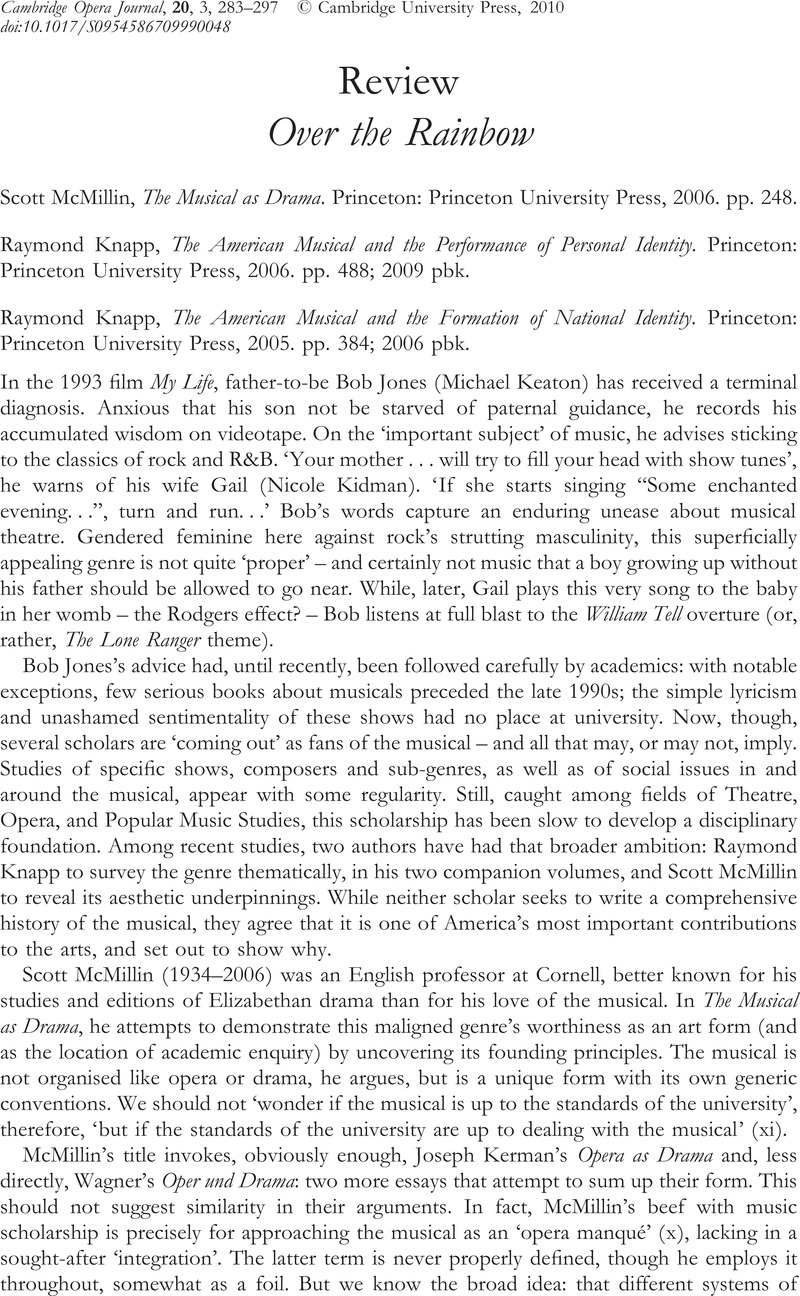No CrossRef data available.
Article contents
Scott McMillin, The Musical as Drama. Princeton: Princeton University Press, 2006. pp. 248. - Raymond Knapp, The American Musical and the Performance of Personal Identity. Princeton: Princeton University Press, 2006. pp. 488; 2009 pbk. - Raymond Knapp, The American Musical and the Formation of National Identity. Princeton: Princeton University Press, 2005. pp. 384; 2006 pbk.
Review products
Published online by Cambridge University Press: 28 January 2010
Abstract

- Type
- Book Review
- Information
- Copyright
- Copyright © Cambridge University Press 2010
References
1 One target McMillin may have had in mind, although he is too polite to mention it, is Joseph P. Swain's The Broadway Musical: A Critical and Musical Survey, 2nd edn (Lanham, MD, 2002), which cites these three books in particular as models (vii).
2 Edward T. Cone, The Composer's Voice (Berkeley, 1974).
3 For a more sympathetic perspective, see Jessica Sternfeld, The Megamusical (Bloomington, IN, 2006).
4 Andrew Lloyd Webber, ‘The Music of Evita’, in Lloyd Webber and Tim Rice, Evita: The Legend of Eva Peron, 1919–1952 (London, 1978), cited in Knapp, The American Musical and the Performance of Personal Identity, 342.
5 Here Knapp is recapitulating (sometimes word for word) an argument he made in the Introduction to National Identity, c. 13, although it not as central to that book.
6 For a related critique, see Steve Swayne's review-article ‘In Search of the Gay Musical’, Journal of Homosexuality, 43 (2002), 99–111. Swayne powerfully takes issue with both John M. Clum's Something for the Boys: Musical Theater and Gay Culture (New York, 1999) and D. A. Miller's Place for Us: Essay on the Broadway Musical (Cambridge, MA, 1998) for seeking to prescribe how a gay man should enjoy a musical.
7 For a different perspective, see Bruce Kirle, Unfinished Show Business: Broadway Musicals as Works-in-Progress (Carbondale, IL, 2005).
8 The Americanist focus of most work on the musical, of which Knapp's is only the most explicit example, also requires supplementation with international perspectives (a project already well under way for jazz). Witness the conference on ‘Germany's Reception of the Broadway Musical’ organised by the Kurt Weill Centre in Dessau, which took place in March 2008.


